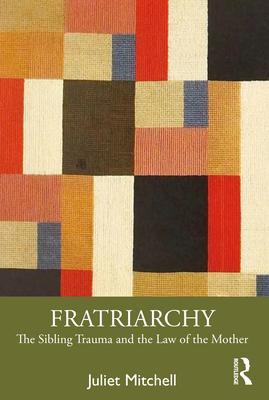In Fratriarchy, Juliet Mitchell expands her ground-breaking theories on the sibling trauma and the Law of the Mother. Writing as a psychoanalytic practitioner, she shows what happens from the ground up when we use feminist questions to probe the psycho-social world and its lateral relations.
In this pivotal text, Mitchell argues that the mother's prohibition of her toddler attacking a new or expected sibling is a rite of passage from infancy to childhood: this is a foundational force structuring our later lateral relationships and social practices. Throughout the volume, Mitchell chooses the term 'Fratriarchy' to show that, as well as the up-down axis of fathers and sons, there is also the side-to-side interaction of sisters and brothers and their social heirs. Making use both critically and affirmatively of Freud, Klein, Winnicott, Bion, Pontalis and others, Fratriarchy indicates how the collective social world matches the individual family world examined by established psychoanalysis. Decades on from Mitchell's work on psychoanalysis and feminism which argued that feminism needed psychoanalysis to understand the position of women, Fratriarchy now asks psychoanalysis to take on board the developing practices and theories of global feminism.
This volume will be essential reading for analysts, psychotherapists, psychologists and anyone who wants to re-think the ubiquity of unconscious processes. It will also interest students and teachers of social theory, psychoanalysis, group analysis, gender studies and feminism.
